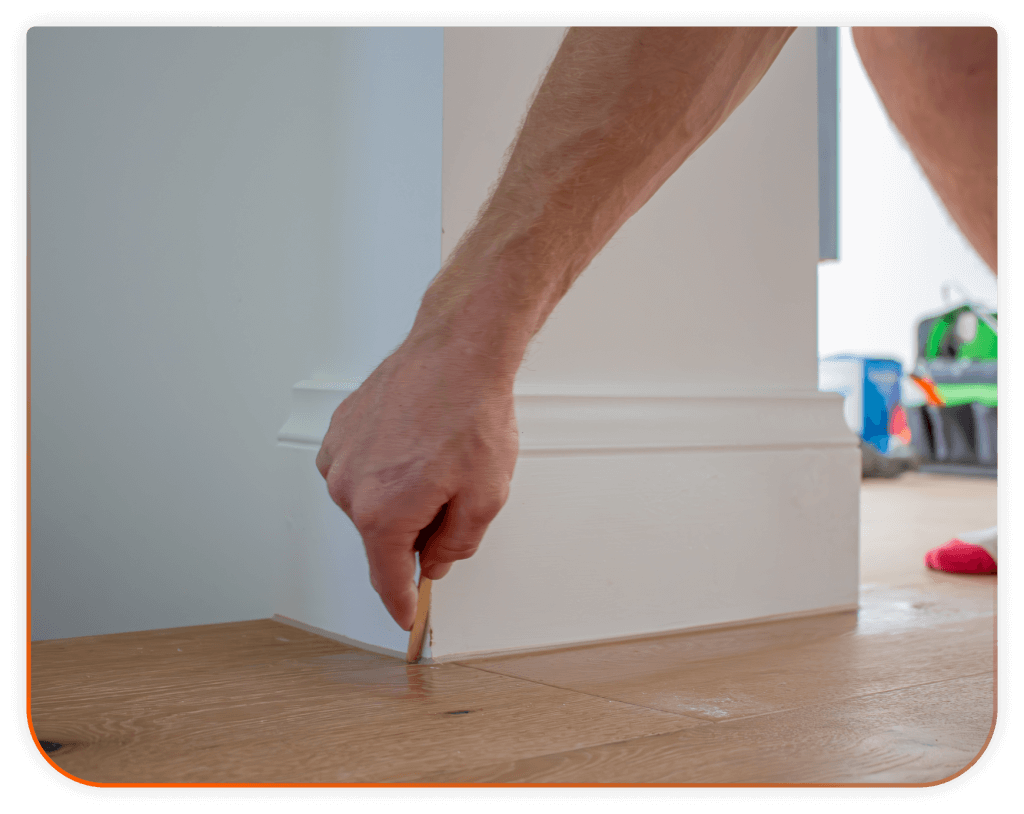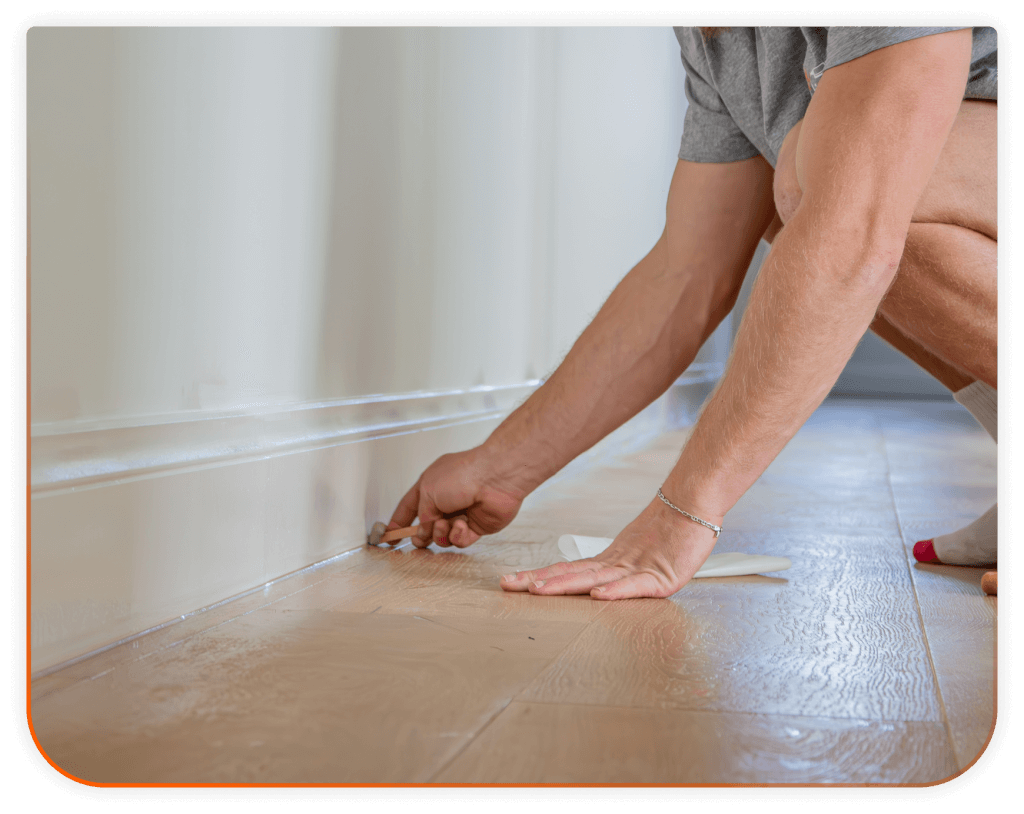Before & After: The Difference Silicone Caulking Makes
Caulking along your skirting boards and stairs with silicone can dramatically enhance the overall finish of your home. Without it, you’re left with uneven gaps that disrupt the clean, polished look of your interior. As shown below, a smooth, consistent bead of silicone gives your stairs and skirts a crisp, professional finish—something that “No More Gaps” and paint simply can’t replicate.


Common Mistakes We See
Time and again, we notice homeowners and builders opting for a quick fix: having the painter fill the joints with gap filler during the plastering stage, followed by painting straight to the stair. While it might seem convenient at the time, here’s why that approach often falls short:

- Gap fillers don’t allow for movement: Despite what some painters might say, these products are not flexible. Any natural expansion or movement in the materials will cause them to crack—meaning you’ll need to repair or redo the work using proper silicone.
- Painted joints don’t provide a straight, clean line: Achieving a neat finish with paint alone requires extensive masking and prep work. If done poorly or rushed, it results in inconsistent lines that detract from the overall appearance. To do it properly, painters would need extra time (and likely charge extra), or they’ll cut corners elsewhere to stay on schedule.
- Colour-matched silicone blends in seamlessly: When caulking skirts to floorboards, we match the silicone colour to your flooring wherever possible. This creates a seamless, almost invisible transition. White silicone, although clean at first, tends to collect dust over time, making it look dirty and drawing attention to the joint. Matching the silicone to the floor avoids this issue entirely.
Thanks to the wide range of silicone colours available today, we can usually find a close match to your floor. White is only used when absolutely necessary—and only as a last resort.

